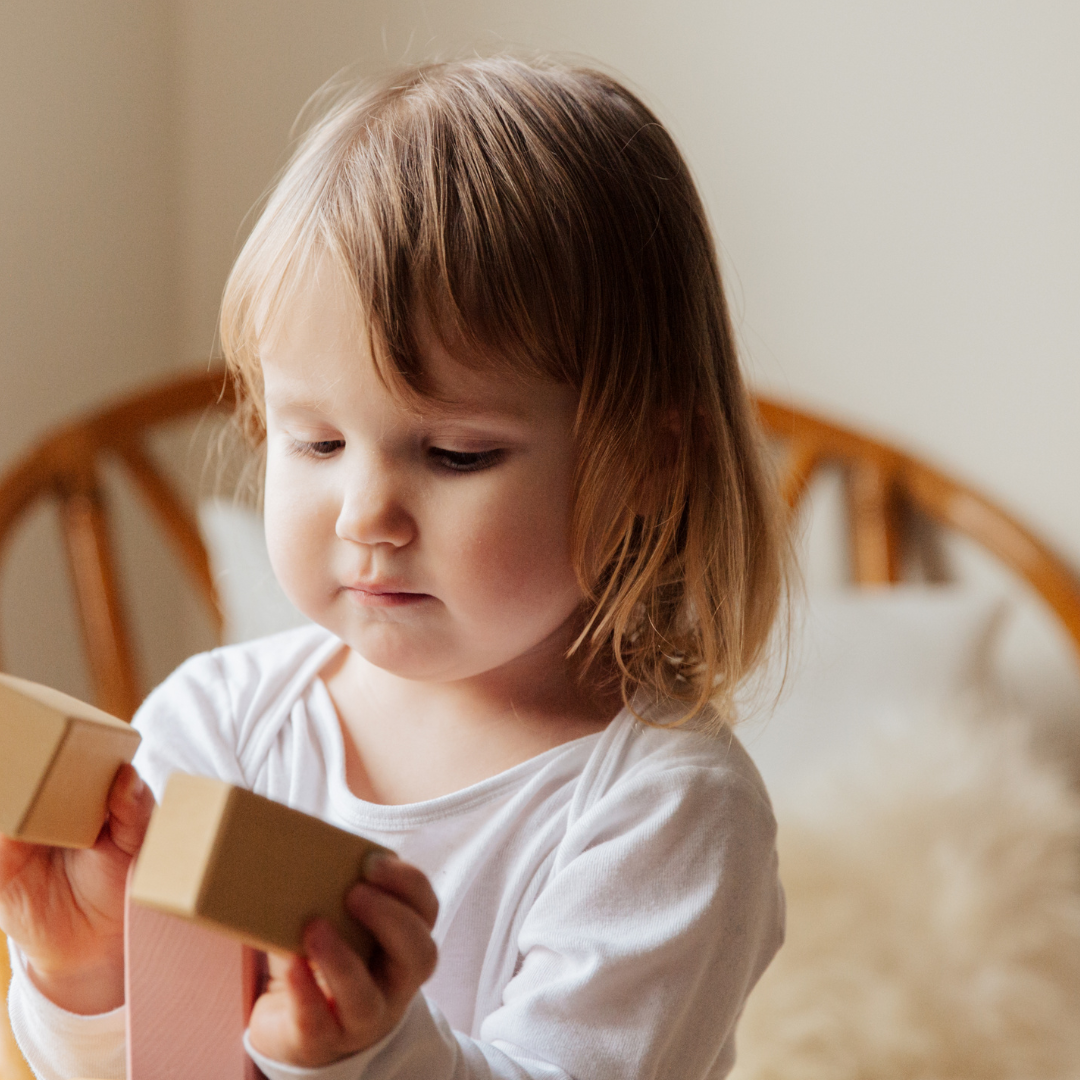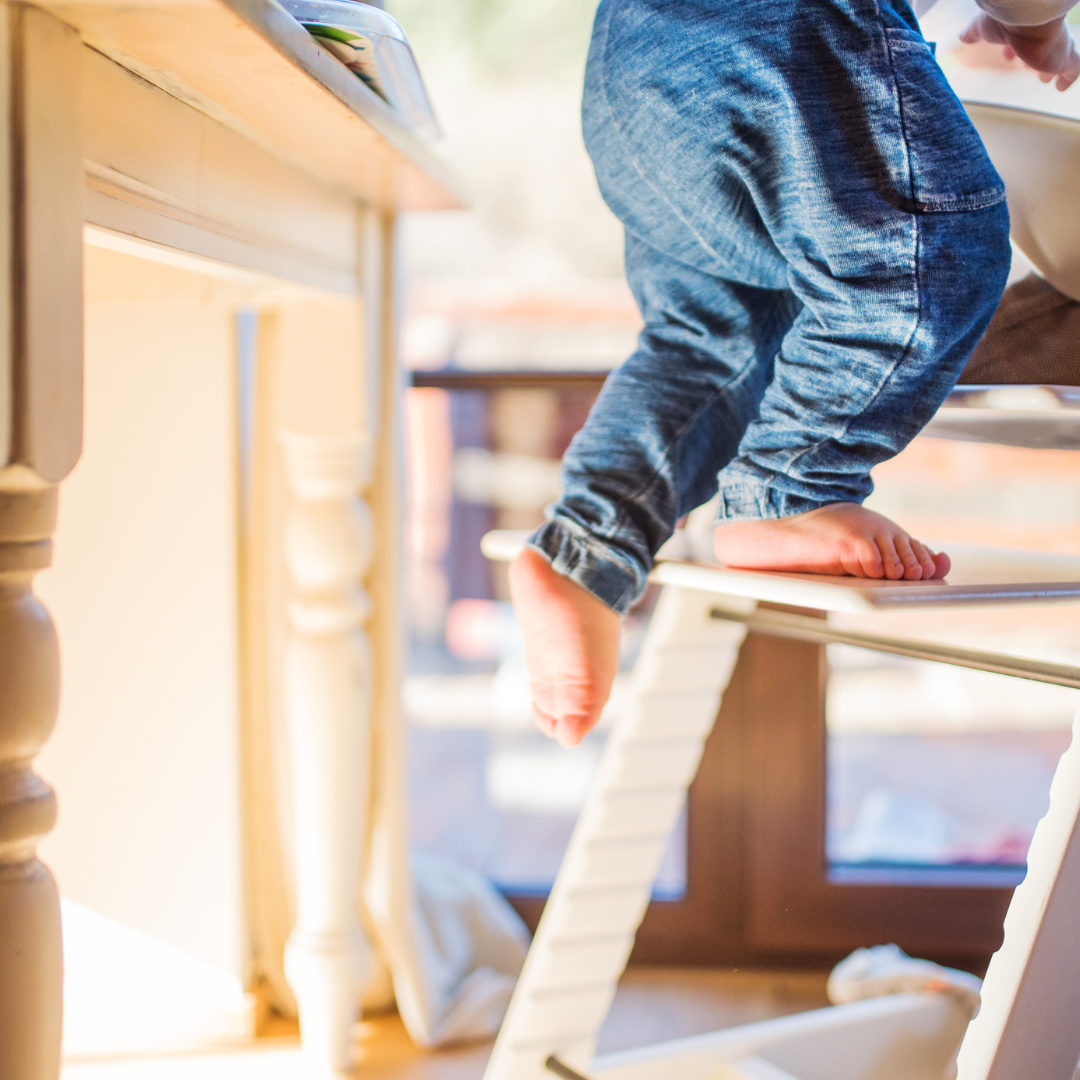Ever feel like you are stuffing it all up as a parent? Chances are, you're doing much better than you realise.

I was chatting to the most gorgeous new dad of a newborn baby girl this week. He was overjoyed to be a new father…learning to swaddle, supporting his partner, and absolutely smitten with his baby. There was one thing he was struggling the most with… constant worry about getting it wrong.
He told me: ‘No doubt about it there are highs, and really low lows, it’s a rollercoaster - but the hardest part of all is the worry about mucking it up’.
Nothing could have prepared this dad for the underlying, nagging worry that maybe somehow despite trying his best he was already ‘stuffing it up.’

This dad, is not alone.
This voice that we might be stuffing things up is one that SO MANY parents can relate to.
Whichever way your decisions as a parent roll around sleep, food, or boundaries; despite doing your very best you will (probably many times a week or day) still find a way to wonder ‘am I doing it wrong?’
This usually happens on the couch at night, or at 3am in your bed.
For parents It can be like the voice of a bully;
- whispering in our ears every time we yell at our child or when we give in when we should hold a limit
- or when we compare our child to others and it feels like our child isn’t ‘tracking’ like they should
- It’s the guilt when you didn’t do the kindy readers (again) or you are not offering enough veggies
- or the worry that your child experiences meltdowns you’d be embarrassed for others to know about.
In comes that voice of doubt….. 'See, you’ve already mucked it all up’.
Parenting is definitely harder than it used to be. I think there are two main reasons for this: The village has changed, and there is an information overload.
The village has changed
We don’t parent as much as we once did within wider communities that support us physically and emotionally with the raising of our kids.
Even if we are lucky enough to be well supported with friends or family that are involved in our family lives. It’s unlikely they are present in ways family was in the past. I often joke to parents they won’t be going home with their newborns to a village of aunties who will be rocking the baby to sleep each night. We all laugh, but the thing is, around the world for thousands of years… that’s what did happen. Parents were rarely doing it all in a silo of 1-2 people.
This is because we have babies later, our own parents are often still working when we have kids, two parents usually need to work to raise children and the village that existed where kids free ranged though local neighbourhoods for hours at a time… is largely a thing of the past.
In came the information overload.
Thanks to attachment research and huge leaps in neuroscience we know more about what kids need. This is new information and don’t get me wrong - it’s fantastic. But here in lies one of the biggest challenges, amongst all this information, how do we know what’s the right decision for our child?
From the minute parents have their very fist scan in 3D they already know more about the potential problems than ever before. Undoubtably a good thing when we can pick up problems earlier… but for the mental load of parents, it adds up.
The information overload can mean that even when it comes to the simplest decision like “to use a dummy or not” we are basically sifting through an avalanche of opinions and advice about the potential pitfalls and harm that may or may not happen to our child short and longer term….. it can make very small thing feel very, very big and the load of that is tiring, and frightening for parents who more than anything else, want to get this job done ‘right’.
Parents heads are swimming with stats on how to get nutrients into kids, how to develop their emotional intelligence, and minimise screen time. They know more, and because of that they are doing it differently to their own parents, and there is no guidebook for that.

So, what can parents do to find peace and joy in parenting, and to deal with the voice of the bully who whispers ‘you are getting it wrong’…
To do this you need to first become aware the voice is not a fact but a ‘feeling’ and then you need to learn to talk about it. You need to be aware that it feels hard because you are trying to do more than any generation before you. Parents are juggling greater expectations of themselves and their kids. In short they are not just sweating the big stuff, they are sweating all the stuff, all the time. Which can lead to a negative view of how we and our child are tracking.
Brene Brown has given me one of the best tools to help parents with this idea and it sounds like this:
“The story I’m telling myself is….but here is what I know”
“The story I am telling myself is that my child might just be in my bed forever because they are still there at 6 years old…but here is what I know: this feels right for our family, that we are all getting sleep, it’s not hurting anyone and you know what, he probably will want to sleep with someone else one day”.
“The story I am telling myself is that I have stuffed up my child forever because I snapped at them….. but here is what I know – I am human, and all parents make mistakes, and I am able to repair this when I am ready."

The problem with this voice that tells us we are getting it all wrong? We think it might help us to be a better parent, but actually the inverse is true. This voice sends your brain into fight or flight.
It keeps you heightened and stuck in the future or the past, it stops you from being present, and stops you from enjoying your kids as much.
According to Kristen Neff negative self talk is so harmful that evidence shows it’s as hard on your brain as actually being yelled at by another person. This voice, that you may think is keeping you vigilant and a better parent, makes it harder for you to be the parent you want to be.
Once you’ve acknowledged that the negative view of your parenting is just a story you are telling yourself you can attempt to talk to yourself like you would a good friend. You can remind yourself that all parents struggle, and you are doing your best.
Here are three reminders you can use:
- You (and your child) are doing so much better than you think, you just know SO MUCH MORE so it’s easy to see only what you might be missing, and not all the fabulous ways you are nailing it. Try to remember the stuff that is going ok.
- It feels hard because it IS hard. There is more financial pressure, more social pressure, and less support. It’s definitely harder. What can you drop from the ‘to do’ list today?
- No one else knows what they are doing either… we assume we are the only ones feeling lonely, worried we are stuffing it up, feeling like we are not sure what to ‘do’ next with our kids… and the truth is that is ALL OF US!!!

And finally, there is this: there is a whole lot of wriggle room in parenting.
Evidence shows that if you are meeting the emotional needs of your children around 30% - 40% of the time this is ideal. Many parents are shooting for way more than that and beating themselves up for every single mistake. It’s just too high a bar.
Self compassion is the start point to enjoying parenting more in the moment, and being the parent you want to be. Letting yourself off the hook more often is likely to give you the breather you need to be the parent you want to be the next day. Talking kindly to yourself is also one of the biggest gifts you can give your children who will watch you recover from mistakes and be kind to yourself, and allow the same for themselves.
Next time that bully voice whispers in your ear more than anything else try to remind yourself you are doing the best that you can.
And know this: You and your child are doing SO MUCH BETTER than you know, and you’ve totally got this.

